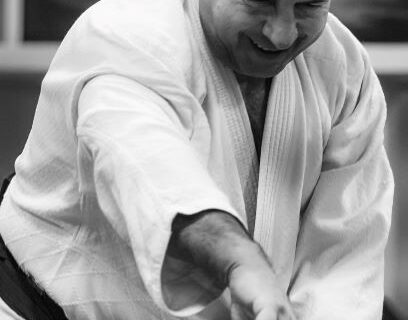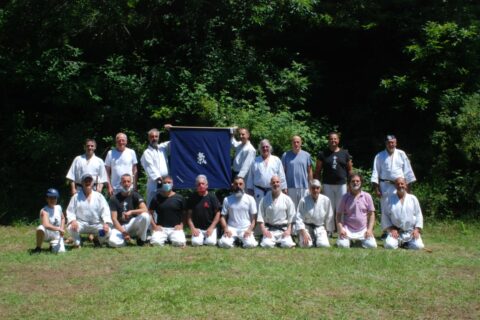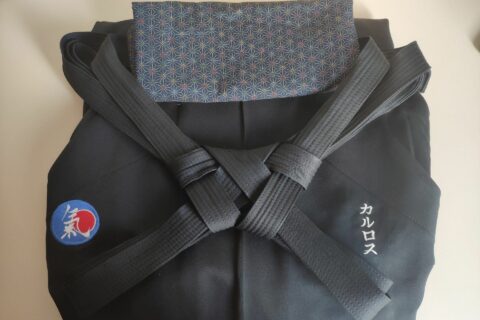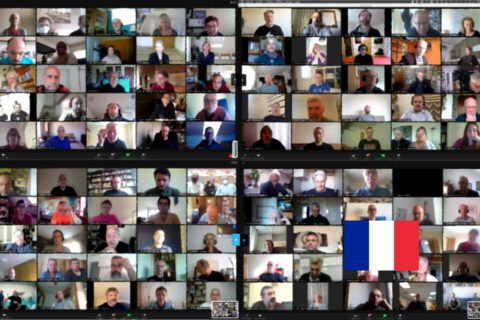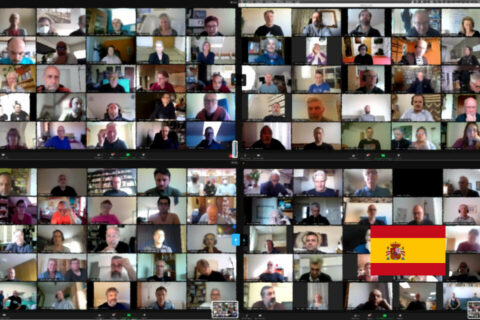Among all the topics emerged from the international online meeting on April 24th, the one concerning exams or more correctly, passing grades stood up. All the different points of view expressed during the meeting allowed me to see the problem under different angles I didn’t take into account.
One of the things we all agreed upon was that the system of exams and grades, for a beginner, is a formidable motivation and provides a clear path to follow with references in terms of perspective and technical curricula. If we consider the matter under the point of view of the dojo, again, it is a great opportunity for the whole community of practice to work and develop together.
But as the level goes up and the Kyu becomes Dan, the situation starts to change, the demand for a technical framework fades away in favor of a deeper awareness and a broader picture, that in return bring other needs and demands. Last but not least the degrees form a sort of structure, both locally and globally, we’re going to get back to that.
I think it’s useful to recall how things used to work so far:
- For the Kyu levels (white belt) almost every dojo was autonomous for exams and diplomas, unless the dojo instructor was needing and asking some external help
- For the 1st and 2nd Dan, some dojo instructors were able to examine both, the diploma was however issued by Sensei, just like all the other black belt degrees
- 3rd and 4th Dan exams were held by Sensei, usually during seminars
- The remaining degrees from 5th dan and above were given by Sensei ad personam
One thing that was outlined in the debate is that, for most people at least, the organization for the first two points could remain basically the same. For the other two cases, well there are more things to take into account given the circumstances:
- 3rd and 4th dan will require the single dojos to choose one or more reference figures to trust for help
- Higher degrees will require, in my opinion, not only trust but even broad consensus
One of the question Sensei liked to throw at classes during 4th dan exams was “Now we need to ask ourself: why do we practice?”. It’s a straightforward, rather simple question but the answer is not so obvious. Up to the 4th dan, maybe, one could say to have practiced to complete the technical curriculum of his school but what will be the motivations in order to continue beyond that point?
To me it’s evident that the technique at some point becomes less relevant than the whole context of self development as a motivation. It’s impossible to have such an awareness from day one but especially for those bearing the black belt for some times, this very question is not something they can avoid for long.
In full coherence with what was the teaching of Sensei, I’m afraid that there is no easy way out of this, there is no ready made solution and everybody will have to find the answer for herself/himself.
What’s the point with trust?
Since it’s not possible to physically quantify a dan on a scale plate, the whole grading system is based essentially on mutual trust and consensus, which means in the value that the community gives to it. Paraphrasing a sentence I’ve read among the visions of future, this trust will require a great sense of self-responsibility and honesty from everybody.
Trust is intangible yet it will be paramount, because should it ever falter, the value of any degree could fall down either triggering a domino effect bursting the “bubble” or slowly fading into disappearence, in both cases with the final result of collapsing the whole structure.
During the free debate, we asked ourselves how to address the problem of “tatami demographics” and the unbalance between white belts and black belts. I think this problem is linked with responsibility too.
Just like nobody would invest money in a collapsing market when the bubble melt, nobody will invest time in a practice based on relationship and harmony if they don’t see that there is an underlying, rock solid asset under the golden patina of grades.

Up to now the whole grades system was managed and regulated directly or indirectly by our Doshu, but for the years to come we will have to find a way to do it ourselves and to do it right.
My opinion is to consider degrees, especially the higher ones, as a natural consequence of a growing process which requires a progressive assumption of responsibilities, rather than a mere way to show a “status”.
A sentence Beppe used to repeat unnervingly often was “being good is not enough”, damn he was right.
If we think about it, it’s nothing new really! Before covid struck, the dojo already used to interact for common activities, lessons, small seminars and gatherings, and these interactions were not driven by degrees but rather by mutual respect, trust and even friendship.
The loss of our Doshu in a certain way, put ourselves in front of the necessity to continue in this direction with even more determination. For the writer, there is no other way.
